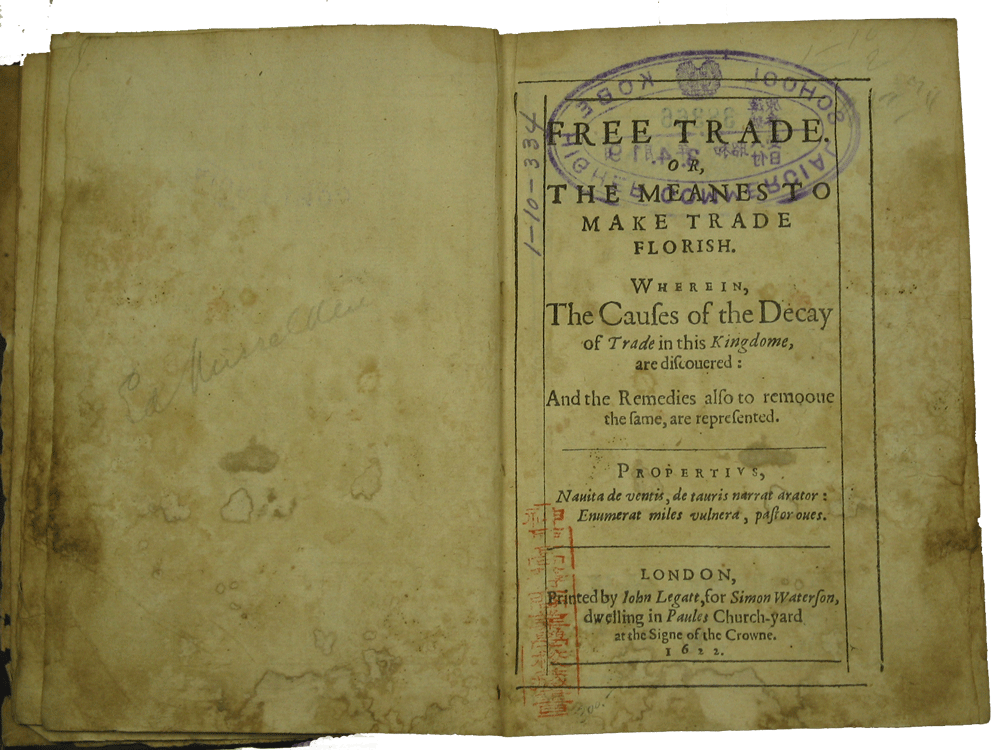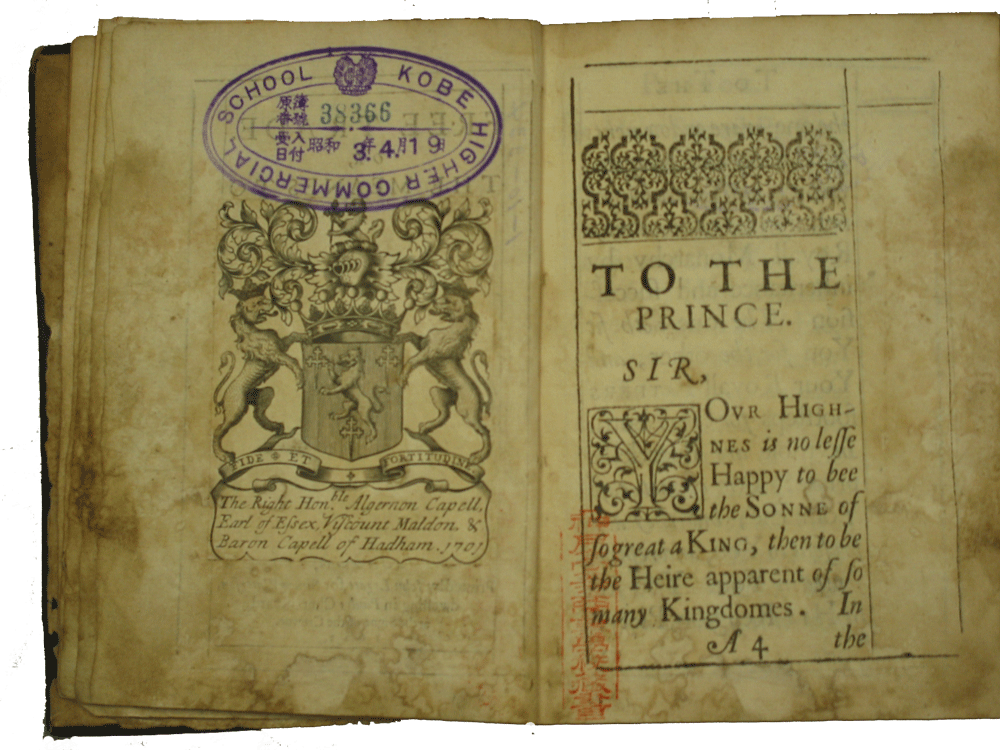

1622. Anon. Misselden, Edward?
This book proves that the main causes of a trade decline of Britain in the beginning of the 17th century were based on lack of money, and presents the relief measures of how for money to be enriched and to make trade prosper. Although the author asserts the “necessity for trade control”, and “exclusion of monopoly” as one of them, the problem is the concept of a free trade of those days. “Freedom of trade” in a modernistic meaning did not matter in the 17th century. The need of a certain control made it possible to accept generally that a company organization should be chosen. The purpose of the “free trade bill” which was mentioned above was not for removing restrictions of as opposed to commercial free competition, but for opening a company to the individuals who wanted to participate in it. Public blame concentrated on “a monopoly of a company” which obstructed individual participation. Thus, “exclusion of a monopoly” was the essence of the free trade theory in the early stages of modern times. This Misselden’s book has an important meaning in terms of understanding the development of a free trade concept. However, this book was refuted by the work of Malynes, “The maintenance of free trade according to…” in the same year.
(Library for Humanities and Social Sciences(1-10-334) 1928.4.19 receiving)
references : Minami, Yuzo “Kohan Keizaisho Kanken” (Kobe Shodai Shinbun 1935.3.20)